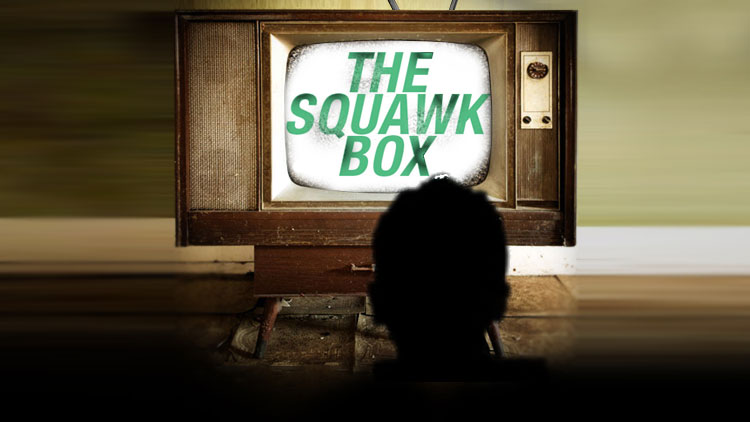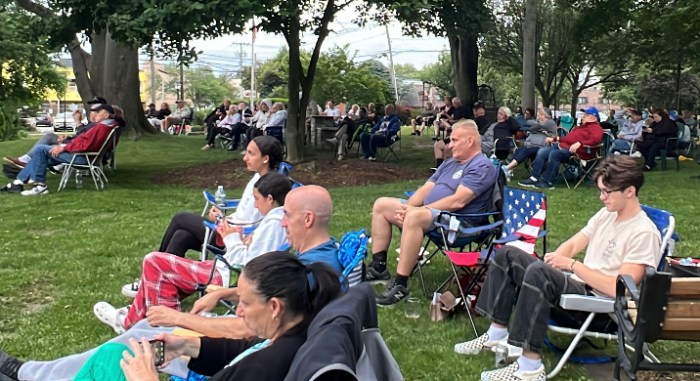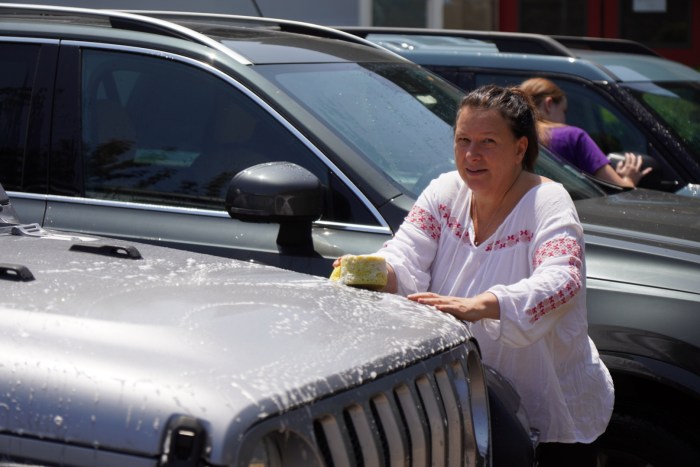Across the spectrum critics and viewers agree we’re watching the Golden Age of Television. This year was no exception. The uncompromising cable shows have raised the bar so high that the main networks had no choice but to compete. Of course, there have been hits and misses—and everybody has some series they can’t live without that others think is crap—but quality beats mediocrity every time you turn on your HDTV. The trouble is that even if you use your DVR from now to eternity, you’ll never catch up with all the great stuff that’s available. You’ll just have to let it go, tune out and move on. What follows is a very biased and extremely jaundiced list of the highs and lows of 2014, with a sneak peak at the year ahead, from us here at the Press.
Spencer Rumsey:
As a Long Islander I felt duty-bound to embrace Showtime’s The Affair because it takes place on the East End in a place called Montauk without the traffic. But in the end (pun intended) I just didn’t care about the adulterous pair: the school teacher-turned-author and the mourning mother-turned-waitress. (Neither did fellow Squawkler Jaime Franchi; Read Her Kneecapping Of The Series Here.) The New Yorker’s great TV critic Emily Nussbaum nailed this pretentious show to the wall when she likened it to “listening to a couple bickering about whose idea it was to go to Queens for Korean food.” Likewise, she pointed out that the more interesting people on the show who should have been screwing around, let alone with each other, were the ones being screwed over. Enough already.

On the other hand, Showtime turned this season of Homeland into must-see TV. Sure, I knew the writers were torturing me with their tortuous plot twists, their manipulative portrayal of the medically messed up Islamabad CIA chief Carrie Mathison, and those murderous mishaps and unbelievable betrayals, but I sat glued to the screen anyway. And to think this season took place in Pakistan where real news and horror happens practically around the clock deepened the veneer of realism. All season I worried about Agent Peter Quinn, Carrie’s one-man army who’d gone rogue. This skilled sniper shot her once, would he do it again? Not even if she stood brazenly in his crosshairs! In fact, he’d rather take himself out. Now that’s putting honor before duty. What a guy!
Some watchers soured on the final season of Aaron Sorkin’s Newsroom on HBO, but not me. I couldn’t get enough of Jane Fonda as a wonderfully powerful woman knocking heads with the media assholes who have dumbed-down our democracy. I enjoyed how fast every Sorkin character talks—even their dialogues are mile-a-minute monologues—they always have so much to say. Such wonderful chemistry was always cooking with the characters played by Jeff Daniels and Emily Mortimer, Olivia Munn and Thomas Sadoski, Alison Pill and John Gallagher, Jr. And having Sam Waterston as the wise old man of the Fourth Estate and Dev Patel as the Internet polymath were great touches, too. I never quite bought into Sorkin’s White House fantasy, The West Wing, probably because I was out living the East Village night life when it ruled prime time, but I felt right at home watching Newsroom, with Sorkin’s focus on the men and women behind the news, rather than the celebrity froth and conservative baloney on the air that takes up way too much of our time.
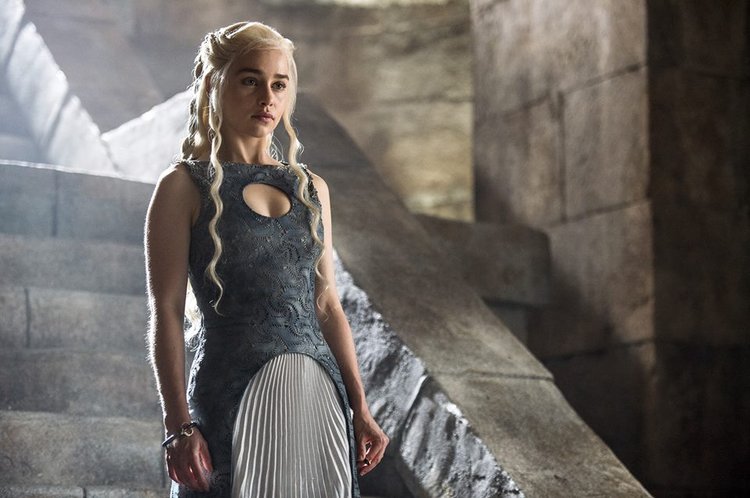
I love watching Game of Thrones but I doubt I’d feel as strongly if I had read any of George R. R. Martin’s A Song of Ice and Fire, the books this engrossing series is based on. But I’ll have to save that for another day. Season 4 ended with more “Stark choices,” so to speak. Arya Stark finally let that big psychopath with the scarred face and scarred heart known as The Hound get his just desserts. What happens to her in Season 5 remains to be seen until the premiere this spring. I just hope she hasn’t lost her Peter Pan-like good points. It’s a tough world, this harsh land she resides in. Up north Jon Snow had his hands full, and I’m worried about those ice creatures gathering steam. Talk about a zombie army! They make all the other crap going on in Westeros look like so much piffle—and the poor men of the Night’s Watch are too little too late, as far as I can tell. Way down south in this imaginary-but-vivid world, across the Narrow Sea, Daenerys Targaryen, my favorite woman on the show (all hail, Khaleesi!), has had to lock up her dragons, and kick out the one guy in her inner circle I most identified with, the love-struck exile Jorah Mormont, who admitted he’d betrayed her. Yeah, he done her wrong so he had to pay. Talk about tough love. Back in King’s Landing, that hornets’ nest of poisonous ambition, the incest angle is heating up as Cersei Lannister has declared her so-called love for her twin brother, the one-handed Jaime Lannister. Their tryst is a real turnoff, at least in my mind, because he is no longer as smarmy as she is since he did his dwarf brother, Tyrion Lannister, a solid after all. And let the record show that if there’s ever news that the actor who portrays him, Peter Dinklage, is leaving the series for whatever reason, that’s it for me: Game over. Meanwhile maybe I will get around to reading those George R.R. Martin books someday.
My biggest disappointment in 2014 is House of Cards, the over-hyped, mean-spirited, scorched-earth Netflix series that ripped off the BBC version based on the House of Lords, which I’ve been told by people I trust is so much better television that there’s no contest. At this point, I am almost willing to pay someone to tell me what happens to Kevin Spacey’s Frank Underwood in Season 3 because life is too short. Just let me know how the cynical-Congressman-turned-opportunistic-Vice President-(emphasis on vice)-now-POTUS meets his well-deserved end, and I can go back to worrying about the 114th Congress, which promises to be really scary because those bad politicians aren’t actors.
Rashed Mian:

This maddening season of Homeland began with great promise: Carrie receives faulty intelligence detailing the whereabouts of a homicidal terrorist, and, without visual confirmation, goes ahead and approves a drone strike inside Pakistan. An entire family celebrating a wedding is slaughtered in the strike, and when the dust settles Hassan Haqqani is unaccounted for. All hail the Drone Queen (It’s even written on a cake!). There we have it, a storyline that appears to borrow from real-life events (See: US drone strikes kills civilians in wedding procession). But the writers go ahead and find a way to screw it all up by latching onto a survivor of the drone strike—Haqqani’s nephew Aayan. Instead of letting the kid go off to college and peacefully mourn the loss of his entire family, the CIA sees this as an opportunity to turn him into an asset. That’s when the season begins to unravel. We’re taken on an agonizing journey that culminates in Carrie (pretending to be a journalist) taking Aayan’s virginity and bedding him over the course of multiple nights inside a CIA safe house in an effort to gain his trust. It’s hard to get our heads around how a show with an A-list roster of writers takes such an unimaginative route. Alas, they weren’t done! They send Peter Quinn, a seasoned assassin contemplating retirement following a recent bender, to question Carrie’s strategy, as if he’s some moral authority. Carrie intentionally has the safe house raided and Aayan is left to journey alone to a rural region of Pakistan where he’s reunited with his murderous uncle. Carrie is pleased. Her plan works. She found Haqqani. Suddenly, Aayan’s brain is blown to pieces. Haqqani, aware of a drone hovering above, produces former CIA Director Saul Berenson, who has been taken hostage. At this point, many fans have already jumped ship, largely due to Carrie’s creepy seduction of the college student. But the season is saved by—who else?—Manny Patinkin (Saul Berenson), who gives a mesmerizing performance during his captivity and again when he has to be convinced by Carrie not to put a bullet in his brain after a failed escape. Haqqani’s siege of the American embassy in Islamabad with the help of the ISI, Pakistan’s intelligence agency, is dramatic enough, but it feels like it was lifted from the script of Fox’s 24. (Remember when terrorists infiltrated the White House in Season 7?) To be fair, the season did rebound, but it squandered an opportunity early on to explore the ramifications of a failed missile strike.
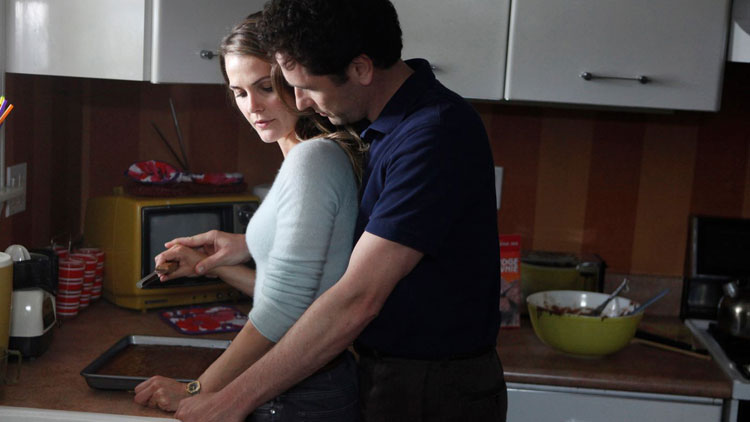
If you’re yearning for a new show to devour in 2015, look no further then FX’s drama The Americans. The series follows a KGB spy couple—Elizabeth and Philip Jennings—who have two kids and ostensibly live a ho-hum life in suburban Washington, D.C., during the Cold War. Just to up the ante, the series’ creators made sure that an obsessed FBI agent lives next door. The show succeeds in turning the Jennings into likable characters despite their mission to gain useful intelligence that they can covertly relay to “The Center” and satisfy their KGB bosses, thereby undermining the United States’ effort. Did I mention they’re also murderers? Still, it’s hard not to root for the Jennings. Take, for example, last season, when another spy couple and their daughter are killed inside a hotel room, leading Jennings to fear the worse: Their family might be next. The drama somehow plays second fiddle to the Jennings’ relationship, which when the series begins is tenuous at best. The KGB forced Elizabeth and Philip to marry and then sent them off to create the all-American family. They grow fonder for each other as the series goes on, and we witness a burgeoning romance. Maybe it’s their fear that any day could be their last that spurs them on, but their affection toward each other feels genuine. Their bond grows tighter despite Philip’s marrying a woman who works inside the FBI’s Washington office. It’s only when Martha boasts to Elizabeth (pretending to be Philip’s sister) about their mind-blowing trysts that Elizabeth can’t help but succumb to jealousy. At home, she insists that Philip take her like he does Martha, but their innocent attempt at roleplaying doesn’t manifest perhaps the way she imagined. Philip, she realizes, is not a doting father and husband when he’s with Martha, but the dangerous spy that he was groomed from a young age to be. But this is more than a story about a KGB couple’s path to unbridled love. Their decisions have real-life implications—for themselves and their children. And as we discover in the Season 2 finale, the KGB’s plan for the Jennings was more protracted than even they believed. The KBG, they learn, intends to turn American-born children of spies into a new generation of agents. And the Jennings’ daughter Paige is a top candidate. Now that’s drama.
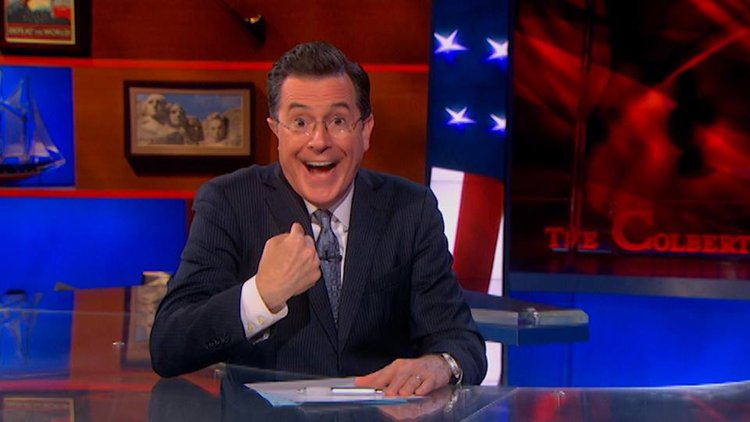
Last week America bid ado to Stephen Colbert’s Colbert Report, and possibly shed a few tears along the way. Colbert is not really going anywhere: He’ll be taking over for David Letterman on The Late Show on CBS, albeit as the real Stephen Colbert, not the self-aggrandizing conservative blowhard character he played on Comedy Central for nine-plus years, and before that as a correspondent on Jon Stewart’s The Daily Show. Still, he’ll be missed in that format. But thanks to the emergence of British-born satirist John Oliver, and Stewart’s continued success, Americans thirsty for late-night political comedy will still get their fix—and perhaps more than they asked for. Oliver, who recently completed the first season on HBO of his Sunday evening show Last Week Tonight, has demonstrated a remarkable ability to profess outrage about hot-button political issues, and use his new-found stardom to spur his audience, and millions of others on the Internet, into action. The new crop of talent on the venerable CBS and NBC late night shows is worth paying close attention to. Jimmy Fallon, who is 10 months into The Tonight Show, has injected much-needed life and stability into a much-coveted late-night institution. It’ll be interesting watching how Colbert adjusts—and for that matter, how viewers adjust to him. He rarely deviated from character during the Colbert Report, so it’ll be fun getting to know the real Stephen Colbert.
Jaime Franchi:
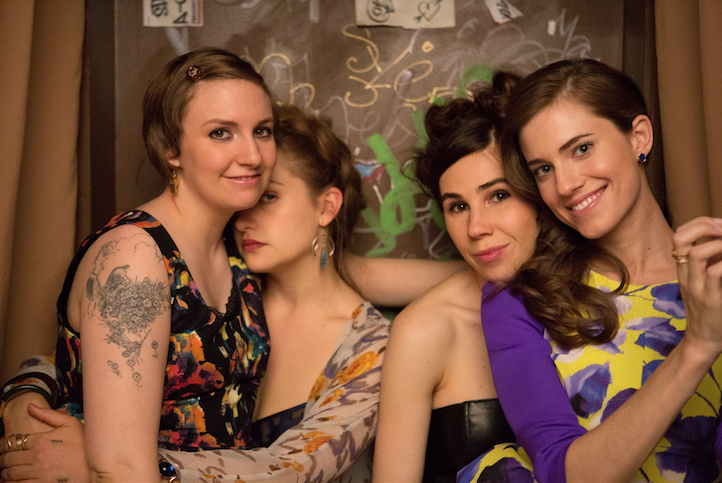
Lena Dunham hit her stride in 2014 with her show Girls. The characters grew deeper, though definitely not mature (thank God). What sets Dunham’s writing apart is her willingness to commit to a flinchingly honest look at the self-absorption that exemplifies life in your twenties. This is important – not only for entertainment’s sake – but from an anthropological point of view. We are living in an era of unprecedented narcissism when our cameras and pens point almost exclusively selfward. Dunham’s Girls pinpoints and documents that exact Gen Y Zeitgeist. It’s awkward and uncomfortable, sometimes excruciating. I watch it and remember the complete asshole I was in my twenties, as the characters Hannah, Marnie, Jessa and Shoshanna undoubtedly are. Unlike how Candace Bushnell’s Sex and The City inspired women to attempt to squeeze ourselves into the caricatures of a Carrie or a Samantha or a Miranda or a Charlotte, the Girls girls don’t try to represent something bigger than the tiny demographic that they are, singular characters with conflicts, neuroses and faults; characters who don’t love and support one another as part of a fictional apparatus, but who alternate between loving their friends and lying to them, from manipulating and sabotaging them, and feeling jealous as they grow, in what seems from here to be real time, in fits and starts and regressions. Dunham gives each character room to breathe, to not find the lesson, and to be ugly. In that exploration, truth peeks out. To me, the portrait she is drawing is breathtaking in its honesty.
Sons of Anarchy was my binge-watching accomplishment of 2014. Lured by the promise of the chiseled torso of British actor Charlie Hunnam’s Jax Teller and the Hamlet-on-motorcycle premise, I tuned in. My initial delight at the captivating portrayal of Gemma Teller by the amazing Katey Sagal (who’s ex-onscreen husband Ed O‘Neill made his own amazing late career comeback in Modern Family) soured soon enough when the glorified violence and convoluted plot points drowned out the considerable acting talent. The body count on SOA had to have added up to the high hundreds by the time the show wound its way down as groups so creatively named as “The Chinese” and “The Blacks” waged battle after battle in their war for control of the gun trade in Charming, a California town so unbelievably small that its tax base can afford to employ about two cops, both of whom are on the take, despite violent A-Team-like shoot-outs and a mounting blood bath that no one outside poor little Charming seems to notice — except for one federal agent, also on the take. Or something. At some point the series grew so outlandish that I could only stand to watch it out of the corner of my eye while my husband saw it through to the end. I’ll give props to the strong female characters -– from Jax’s wife Tara to his ex-girlfriend Wendy (The Sopranos’ Drea de Matteo) to Gemma, who were mostly criminals as well, but who were not played as victims. At the end, I think the writers tried to paint a religious picture with Jax as a Jesus-figure with allusions to bread and wine, but abs aside, I think it was a mighty stretch. I was happy to see this show end.
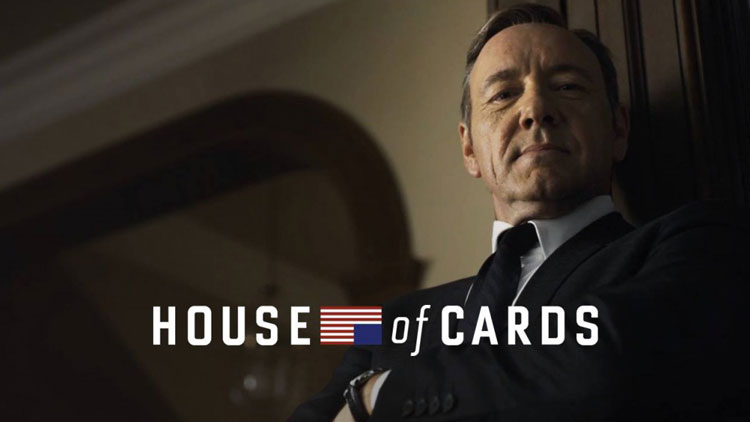
(Photo courtesy: Netflix Facebook page)
Contrary to what my esteemed colleague Spencer Rumsey thinks, I ate up the second season of House of Cards with a spoon, savoring every wicked turn that Kevin Spacey’s Frank Underwood and his equally vile wife Claire (played by Robin Wright) took. It might just be a testament to Spacey’s acting, but I was captivated by every shot that featured his manipulative ascendancy to the Oval Office -– even the typewritten letter my other esteemed colleague Rashed Mian cannot get past. For a show about the inner workings of a male-dominated inner-circle of power inside the Washington Beltway, this show also displayed strong and multifaceted female characters, from Mrs. Underwood to journalist Kate Mara’s Zoe Barnes to Jackie Sharp, played by Molly Parker. Each woman portrayed a depth of character that elevated them from roles as being either stark bitches or simple props. Each character possessed a complex backstory, unique motivation and her own ambition. Even if that drive led to some ugly ends, it was a thrill to watch. I can’t wait to see what happens next (and not just because Spencer has promised to pay me).




